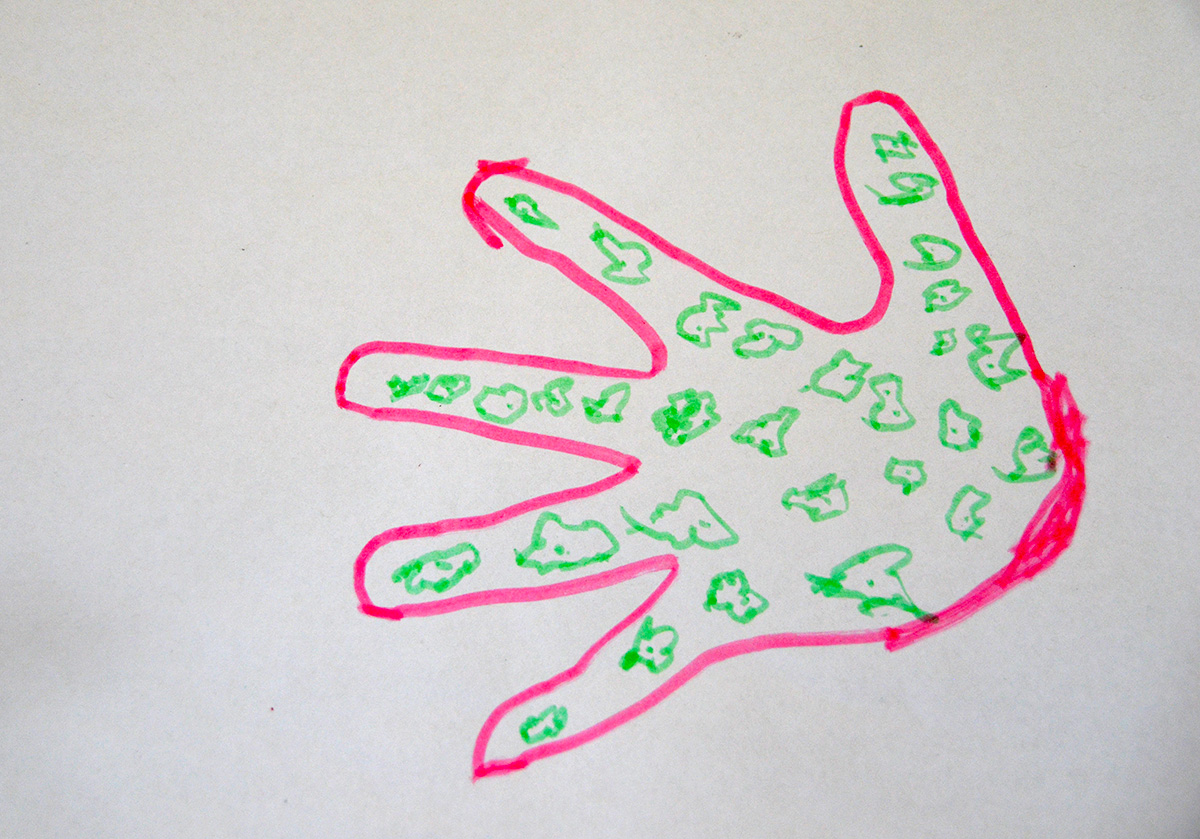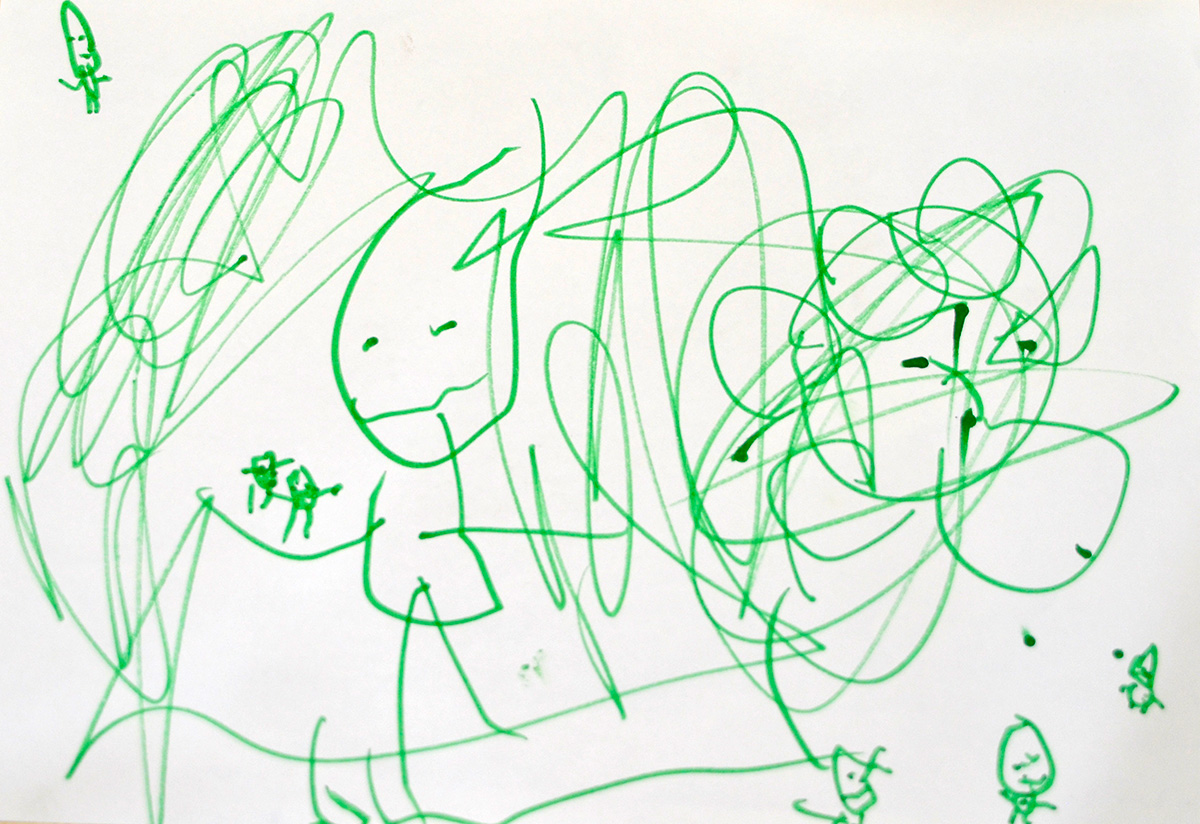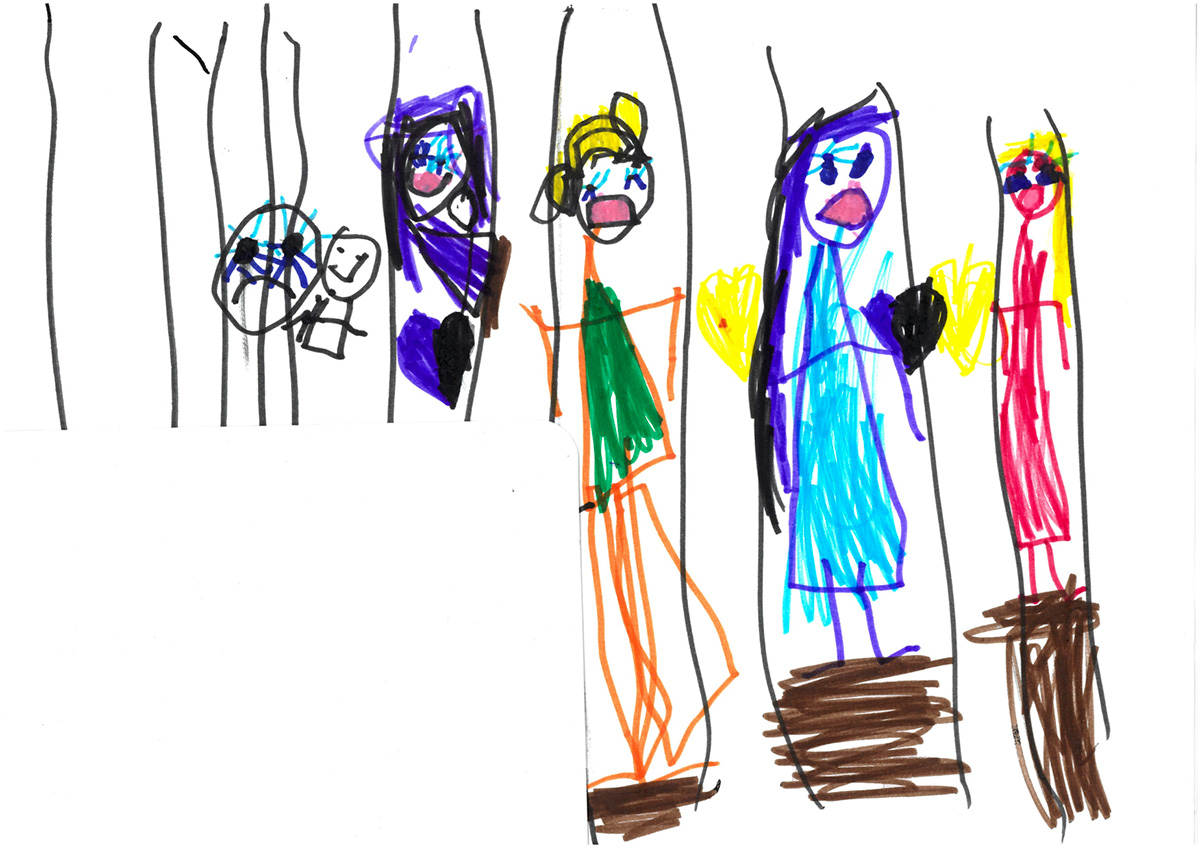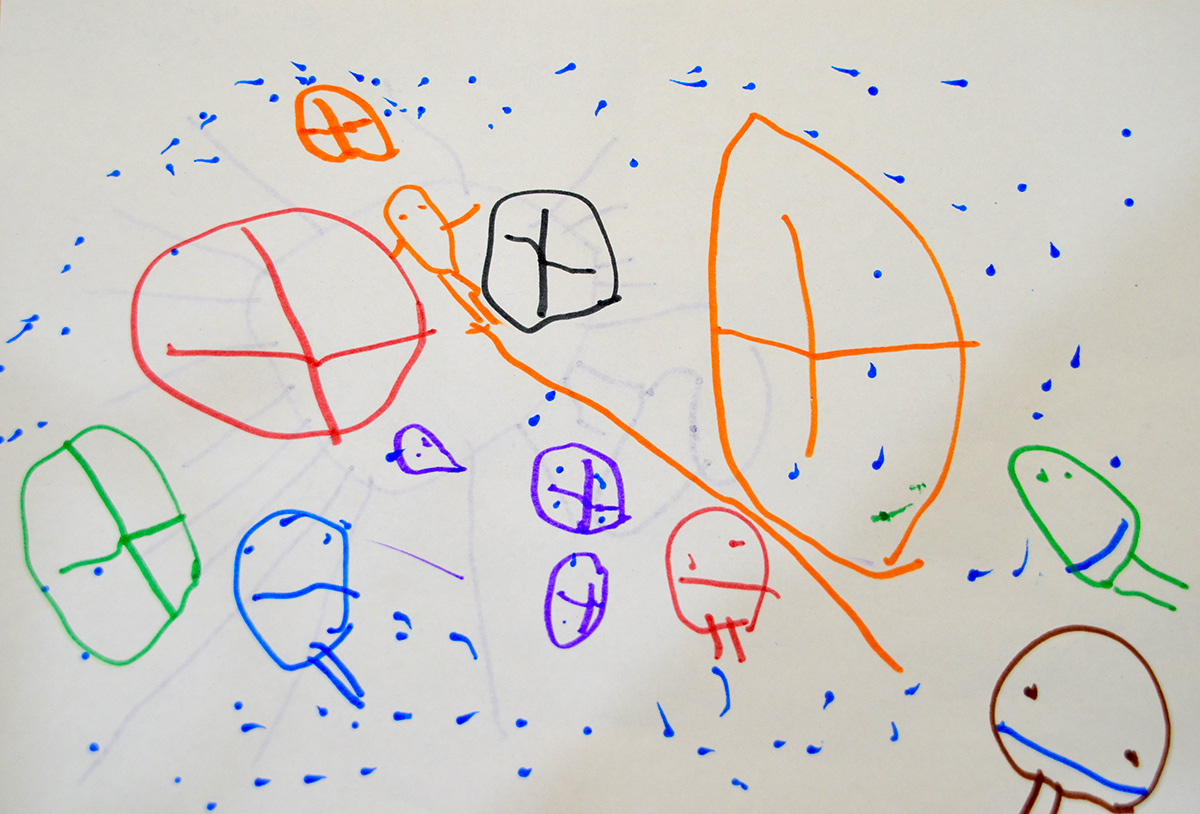Children’s experiences during COVID-19
How have young children experienced COVID-19?
A group of early childhood education leaders from The Front Project’s Apiary Fellowship spoke directly with 3-5 year old children during the early stages of COVID-19 to gain insight into what young children understood about the pandemic and what experiences they were having.
The children are from a diverse range of early childhood education and care (ECEC) services across NSW and Victoria and this was first time many of them were asked for their views on COVID-19.
They gave anecdotes and pictures that tell stories of resilience, hope, sadness and love.
We found that children have a sophisticated understanding about COVID-19 and the affects it could have on their friends and families. The children expressed that they were saddened by having to stay apart from loved ones; like grandparents, teachers and educators and friends. However, they were optimistic that the impacts they were seeing would be temporary, noting that “we will be able to have Christmas”.
The article published in the Australian Educational Leader journal captures the direct and unfiltered voices of children as they reflect on what adapting to life with COVID-19 means to them.




We the thank the children for sharing their important insights with us and assisting our work in discovering the different impacts COVID-19 is having on early learning in Australia.
